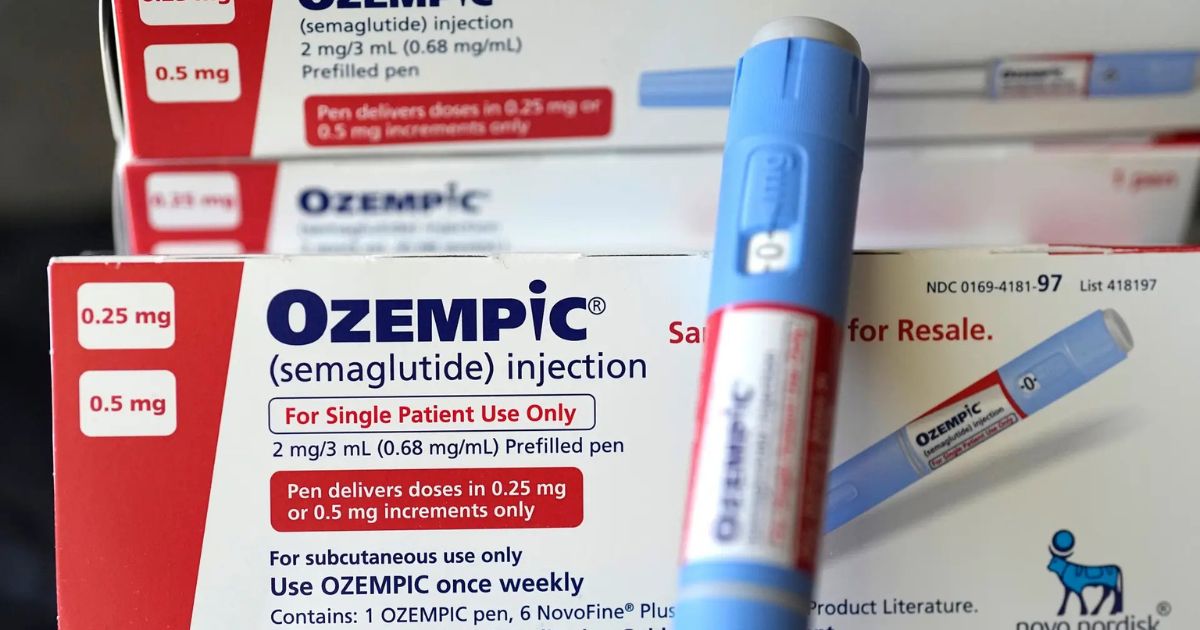In a world where how one looks dictates everything and trumps one’s behaviour and talent, no wonder Ozempic became a wonder drug.
Ozempic was first created to treat Type 2 diabetes. However, it has gained a lot of attention lately as a weight-loss tool. Semaglutide is the primary ingredient of the medication.
It has garnered a lot of attention due to its reputation for reducing hunger and extending feelings of fullness. The main customers of this drug include celebrities, models, and actors.
However, specialists are voicing worries about what happens to patients who stop using Ozempic.
Injections of Ozempic are given into adipose tissue. The most common location for the injection is typically the upper arms or stomach. Semaglutide imitates the naturally occurring hormone GLP-1 (glucagon-like peptide-1).
What is Ozempic, really?
It is NOT some magical fat-burning pill.
It makes you less hungry and slows your digestion.
You naturally want to eat less. That’s it.
No miracles. pic.twitter.com/mpRGZjJsCJ
— Ábris Babicz | The Demi Cycle Protocol 🧬 (@AbrisGains) January 15, 2025
This hormone controls blood sugar and encourages fullness once it enters the body. As a result, there is less hunger and more insulin produced. This insulin then transports blood sugar into cells and maintains steady energy levels. This also inhibits food cravings.
Ozempic helps people control their blood sugar and lose weight. But it’s not a long-term solution. Its effectiveness depends on continuous administration. Stopping the drug can have a number of negative effects on the body.
Ozempic’s side-effects are shocking:
– Pancreatitis
– Gallbladder problems
– Changes in your vision
– Stomach flu symptoms
– Kidney problems (kidney failure)
– Symptoms of ileus (stomach paralysis)How many doctors tell patients this? pic.twitter.com/uDK9OICvIW
— Ábris Babicz | The Demi Cycle Protocol 🧬 (@AbrisGains) January 15, 2025
Healthline states that stopping the usage of semaglutide suddenly can result in an “internal imbalance.” The body will no longer be able to rely on the synthetic increase in GLP-1 functions. This sometimes results in a rebound effect. This includes heightened hunger and raised blood sugar. These are the same functions Ozempic was initially able to control. These may come back very intensely, too.
Typical signs of withdrawal include:
- An increase in appetite
- Diminished sensations of fullness
- increases in blood sugar
- Weight gain that happens quickly
There have also been reports of more serious consequences, such as:
- Vomiting and feeling queasy
- Breathlessness
- A headache
- Pain in the chest
- Lightheadedness
- Unusual heartbeat
- Disturbances in vision
- Confusing and anxious
- A fruity, sweet scent that indicates elevated blood sugar
Physicians highly advise against quitting Ozempic without a prescription. This is especially true for those who use medication to treat diabetes. Heart and metabolic health will be significantly impacted by abruptly stopping the medicine.
Stay very far away from a drug known as OZEMPIC.
The side effects are worse than what you are trying to run away from, e.g.
• Pancreatitis
• Cancer of the pancreas, gall bladder, and kidneys
• Depression
But most of you don’t listen.
CHANGE or PERISH#FoodFriday
— Eric (@amerix) April 25, 2025
All medicines are dangerous when taken without supervision. There is nothing like a magic medicine or a magic pill. Ozempic and similar medications have side effects. Even though they may be useful in controlling blood sugar and weight, this does not lower the danger of unknown side effects.
The consequences of quitting medicine emphasize how crucial long-term planning and medical supervision are for such decisions. Lifestyle modifications are also important to maintain success.
Sustained use of Ozempic is required to see the changes in the body. Similarly, a behavioural change is also important. Ozempic weight loss may not be long-lasting.













